Strictly Personal
The Double Encirclement of Morocco on the Diplomatic Frontline, By Aziz Boucetta
Published
11 months agoon
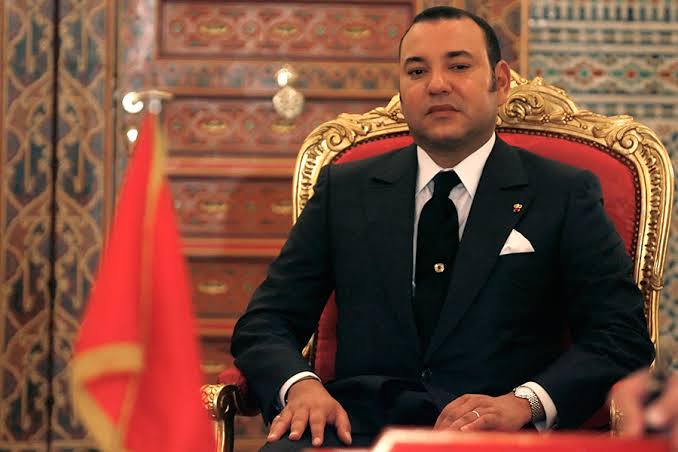
Ever since King Mohammed VI’s speech in 2016 in Riyadh, the position of Morocco has been evolving, and its diplomatic relations are on the move, with both lines of alliance and fracture. The combination of Morocco’s new geopolitical ambitions in addition to the internal political shifts occurring in its neighboring countries created a sort of hostility in its immediate, and even secondary environment. Abdallah Laroui used to say that Morocco is an island; that is the case now more than ever.
What sets the country apart from its neighbors is its long-lasting monarchy, namely that its ruling monarchy breeds resilience and constancy across centuries whereas in neighboring countries, leaders and policies have changed radically over the past few years. This creates a divide in the diplomatic landscape of the region.
The first line of neighbors
In Spain, the arrival of Pedro Sanchez in 2018 after the Mariano Rajoy government’s seven years in power allowed for a spectacular rapprochement between Madrid and Rabat on the heels of, admittedly, a nearly complete freezing of relations. The letter the Spanish Prime Minister sent King Mohammed VI in March 2022 has considerably strengthened ties between Madrid and Rabat.. However, Morocco still remains the “unloved one” of Spanish foreign and even domestic policy.
Sanchez’s famed letter to the Moroccan monarch has created a lot of turmoil for its author, both from the perspective of Spanish society at large and, above all, from that of the political class, which saw his gesture as the Spanish government’s capitulation to Moroccan demands. The durability of the newfound Morocco-Spain reconciliation therefore remains open to question, despite Spanish Prime Ministers’ tendency to embrace realpolitik once in office.
The Algerian case is clearer in this regard. Hostility towards Morocco has been the constant in Algeria since 1963, with the exception of rare phases of improvement. During the Bouteflika era (1999–2019), relations between Algiers and Rabat were a “stormy friendship” at times, but most often a “courteous” animosity. Ever since the arrival of the Chengriha-Tebboune duo, however, the two countries have never been closer to a direct confrontation, with increasingly sealed borders, broken or severed diplomatic relations, and access to Algerian skies restricted to Moroccan aircrafts…
Faced with such a bellicose neighbor, Morocco has increasingly taken steps to prepare for any eventuality. The best signs of the kingdom’s preparedness are its defense deals with Israel and the creation of an eastern defense zone.
With Mauritania, relations remain stable. However, since the election of Mohamed Ghazouani in 2019, Nouakchott has undertaken to expand its partnerships, first drawing closer to the United Arab Emirates, whose diplomatic aggressiveness is well known; this aggressivity is showcased through the provision of aid equivalent to half of Mauritania’s GDP and an increasingly apparent military cooperation. There was also the visit of an Iranian diplomatic leader to Nouakchott last February, where he arrived on board an Algerian airplane. President Ghazouani has somehow “Mauritanized” King Mohammed VI’s famous Riyadh speech…
The spirit of that famous royal speech was the necessity for Morocco to maintain its traditional alliances while opening up to new partners. Yet Mauritania’s perceived rapprochement with Emiratis and Iranians is not necessarily good news for Rabat.
On the second line of neighbors
Morocco’s neighboring countries, including those that do not necessarily share borders with the kingdom, have of late tended to be less friendly than they used to be. Tensions with France, for example, are now common knowledge and, more serious than the differences between states, it is now societies that are drifting apart (mistrust of Moroccans and indifference of the French).
The maintenance of strong economic relations certainly has historic significance, but nothing seems to indicate the future persistence of the “French exception” in Morocco. All indicators actually suggest the opposite, based on the cultural, academic, economic, and emotional aspects.
This is also the case with Tunisia, with the difference that the growing distance between Tunis and Rabat is much more the result of President Kais Saïed’s current policy than the consequence of a fundamental divergence between the two traditionally friendly countries.
However, Macron’s France Maghreb policy is heightening tensions between Rabat and Tunis, tensions born of the Tunisian president’s welcoming of the leader of the Polisario separatists, and consolidated by the pressure exerted by Algiers on Tunis through the budgetary aid that Tunisia’s strangled public finances need. Tunisia cannot refuse Algeria anything, and it is an open secret that the Algerian regime shares France’s hostility towards Morocco.
Then there is Senegal. Since the beginning of 2023, multiple visits of King Mohamed VI to Dakar have been postponed, sometimes for health reasons, and other times without any known reason. President Macky Sall, who is maneuvering to run for an (unconstitutional) third term, is supported by Emmanuel Macron’s France, which strategically needs to keep Senegal in its fold, especially after its hasty withdrawal from the Sahel.
A “Dakar-Paris axis” can only be achieved to the detriment of Morocco, which, after the installation of Wagner militias in Mali with the benevolent neutrality of Algiers, now has only the Senegalese route to ensure the continental extension it so vaunts to its non-African partners.
As such, Morocco finds itself in a double chokehold between these two lines of hostile, unfriendly, and even distrustful neighborhood lines. After a decade of consistent, assertive, and at time even aggressive diplomatic actions, Rabat seems to have closed itself off from its geographical environment, preferring to extend its scope further away, towards the Israeli-American axis on one hand, and Arab-Gulf axis on the other hand, and even further away toward Asia and Latin America.
Is this a carefully thought-out policy, in light of the current geological upheavals and changes in alliance lines? Or is it the result of misunderstandings between Rabat and Paris, the two capitals having an equal (diplomatic) presence in this region of the world, with each party developing its competitive influence for its own strategic interests? Only time will tell.
You may like
-


Survey ranks Egypt, Ethiopia, Morocco, South Africa among 15 ‘cheap countries’ for family trips
-
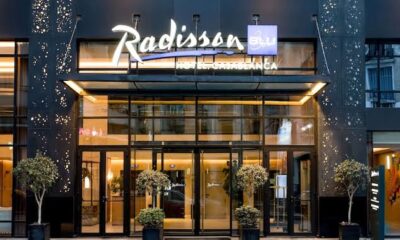

Radisson Group targets 25 hotels in Morocco by 2030
-
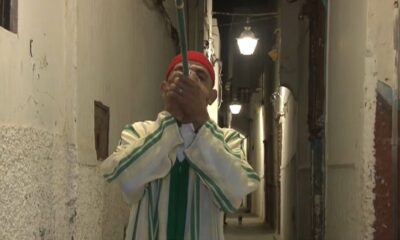

Moroccans celebrate ‘special towncrier’ who works only during Ramadan
-


Morocco wins gold at COSAFA Beach Soccer Tournament in South Africa
-


CIH Bank partners Google to launch Google Pay in Morocco
-


UK scientists discover 66 million-year-old skeleton of ‘nightmarish’ Sea Lizard in Morocco
Strictly Personal
This Sudan war is too senseless; time we ended it, By Tee Ngugi
Published
1 day agoon
April 28, 2024
Why are the Sudanese Armed Forces (SAF) and the paramilitary Rapid Support Forces (RPF) engaged in a vicious struggle? It is not that they have ideological, religious or cultural differences.
Not that people should fight because of these kinds of differences, but we live in a world where social constructions often lead to war and genocide. It is not that either side is fighting to protect democracy. Both sides were instruments of the rapacious dictatorship of Omar el-Bashir, who was overthrown in 2019.
Both are linked to the massacres in Darfur during Bashir’s rule that led to his indictment by the International Criminal Court for crimes against humanity. They both stood by as ordinary, unarmed people took to the streets and forced the removal of the Bashir regime.
None of these entities now fighting to the last Sudanese citizen has any moral authority or constitutional legitimacy to claim power. They both should have been disbanded or fundamentally reformed after the ouster of Bashir.
The SAF and the RSF are fighting to take over power and resources and continue the repression and plunder of the regime they had supported for so long. And, as you can see from news broadcasts, they are both well-versed in violence and plunder.
Since the fighting began in 2023, both sides have been accused of massacres that have left more than 30,000 people dead. Their fighting has displaced close to 10 million people. Their scramble for power has created Sudan’s worst hunger crisis in decades. Millions of refugees have fled into Chad, Ethiopia and South Sudan.
The three countries are dubious places of refuge. Chad is a poor country because of misrule. It also experiences jihadist violence. Ethiopia is still simmering with tensions after a deadly inter-ethnic war.
And South Sudan has never recovered from a deadly ethnic competition for power and resources. African refugees fleeing to countries from which refugees recently fled or continue to flee sums up Africa’s unending crisis of governance.
Africa will continue to suffer these kinds of power struggles, state failure and breakdown of constitutional order until we take strengthening and depersonalising our institutions as a life and death issue. These institutions anchor constitutional order and democratic process.
Strong independent institutions would ensure the continuity of the constitutional order after the president leaves office. As it is, presidents systematically weaken institutions by putting sycophants and incompetent morons in charge. Thus when he leaves office by way of death, ouster or retirement, there is institutional collapse leading to chaos, power struggles and violence. The African Union pretends crises such as the one in Sudan are unfortunate abnormally. However, they are systemic and predictable. Corrupt dictatorships end in chaos and violence.
Tee Ngugi is a Nairobi-based political commentator.
Strictly Personal
Air Peace, capitalism and national interest, By Dakuku Peterside
Published
2 weeks agoon
April 16, 2024
Nigerian corporate influence and that of the West continue to collide. The rationale is straightforward: whereas corporate activity in Europe and America is part of their larger local and foreign policy engagement, privately owned enterprises in Nigeria or commercial interests are not part of Nigeria’s foreign policy ecosystem, neither is there a strong culture of government support for privately owned enterprises’ expansion locally and internationally.
The relationship between Nigerian businesses and foreign policy is important to the national interest. When backing domestic Nigerian companies to compete on a worldwide scale, the government should see it as a lever to drive foreign policy, and national strategic interest, promote trade, enhance national security considerations, and minimize distortion in the domestic market as the foreign airlines were doing, boost GDP, create employment opportunities, and optimize corporate returns for the firms.
Admitted nations do not always interfere directly in their companies’ business and commercial dealings, and there are always exceptions. I can cite two areas of exception: military sales by companies because of their strategic implications and are, therefore, part of foreign and diplomatic policy and processes. The second is where the products or routes of a company have implications for foreign policy. Air Peace falls into the second category in the Lagos – London route.
Two events demonstrate an emerging trend that, if not checked, will disincentivize Nigerian firms from competing in the global marketplace. There are other notable examples, but I am using these two examples because they are very recent and ongoing, and they are typological representations of the need for Nigerian government backing and support for local companies that are playing in a very competitive international market dominated by big foreign companies whose governments are using all forms of foreign policies and diplomacy to support and sustain.
The first is Air Peace. It is the only Nigerian-owned aviation company playing globally and checkmating the dominance of foreign airlines. The most recent advance is the commencement of flights on the Lagos – London route. In Nigeria, foreign airlines are well-established and accustomed to a lack of rivalry, yet a free-market economy depends on the existence of competition. Nigeria has significantly larger airline profits per passenger than other comparable African nations. Insufficient competition has resulted in high ticket costs and poor service quality. It is precisely this jinx that Air Peace is attempting to break.
On March 30, 2024, Air Peace reciprocated the lopsided Bilateral Air Service Agreement, BASA, between Nigeria and the United Kingdom when the local airline began direct flight operations from Lagos to Gatwick Airport in London. This elicited several reactions from foreign airlines backed by their various sovereigns because of their strategic interest. A critical response is the commencement of a price war. Before the Air Peace entry, the price of international flight tickets on the Lagos-London route had soared to as much as N3.5 million for the economy ticket. However, after Air Peace introduced a return economy class ticket priced at N1.2 million, foreign carriers like British Airways, Virgin Atlantic, and Qatar Airways reduced their fares significantly to remain competitive.
In a price war, there is little the government can do. In an open-market competitive situation such as this, our government must not act in a manner that suggests it is antagonistic to foreign players and competitors. There must be an appearance of a level playing field. However, government owes Air Peace protection against foreign competitors backed by their home governments. This is in the overall interest of the Nigerian consumer of goods and services. Competition history in the airspace works where the Consumer Protection Authority in the host country is active. This is almost absent in Nigeria and it is a reason why foreign airlines have been arbitrary in pricing their tickets. Nigerian consumers are often at the mercy of these foreign firms who lack any vista of patriotism and are more inclined to protect the national interest of their governments and countries.
It would not be too much to expect Nigerian companies playing globally to benefit from the protection of the Nigerian government to limit influence peddling by foreign-owned companies. The success of Air Peace should enable a more competitive and sustainable market, allowing domestic players to grow their network and propel Nigeria to the forefront of international aviation.
The second is Proforce, a Nigerian-owned military hardware manufacturing firm active in Rwanda, Chad, Mali, Ghana, Niger, Burkina Faso, and South Sudan. Despite the growing capacity of Proforce in military hardware manufacturing, Nigeria entered two lopsided arrangements with two UAE firms to supply military equipment worth billions of dollars , respectively. Both deals are backed by the UAE government but executed by UAE firms.
These deals on a more extensive web are not unconnected with UAE’s national strategic interest. In pursuit of its strategic national interest, India is pushing Indian firms to supply military equipment to Nigeria. The Nigerian defence equipment market has seen weaker indigenous competitors driven out due to the combination of local manufacturers’ lack of competitive capacity and government patronage of Asian, European, and US firms in the defence equipment manufacturing sector. This is a misnomer and needs to be corrected.
Not only should our government be the primary customer of this firm if its products meet international standards, but it should also support and protect it from the harsh competitive realities of a challenging but strategic market directly linked to our national military procurement ecosystem. The ability to produce military hardware locally is significant to our defence strategy.
This firm and similar companies playing in this strategic defence area must be considered strategic and have a considerable place in Nigeria’s foreign policy calculations. Protecting Nigeria’s interests is the primary reason for our engagement in global diplomacy. The government must deliberately balance national interest with capacity and competence in military hardware purchases. It will not be too much to ask these foreign firms to partner with local companies so we can embed the technology transfer advantages.
Our government must create an environment that enables our local companies to compete globally and ply their trades in various countries. It should be part of the government’s overall economic, strategic growth agenda to identify areas or sectors in which Nigerian companies have a competitive advantage, especially in the sub-region and across Africa and support the companies in these sectors to advance and grow to dominate in the African region with a view to competing globally. Government support in the form of incentives such as competitive grants ,tax credit for consumers ,low-interest capital, patronage, G2G business, operational support, and diplomatic lobbying, amongst others, will alter the competitive landscape. Governments and key government agencies in the west retain the services of lobbying firms in pursuit of its strategic interest.
Nigerian firms’ competitiveness on a global scale can only be enhanced by the support of the Nigerian government. Foreign policy interests should be a key driver of Nigerian trade agreements. How does the Nigerian government support private companies to grow and compete globally? Is it intentionally mapping out growth areas and creating opportunities for Nigerian firms to maximize their potential? Is the government at the domestic level removing bottlenecks and impediments to private company growth, allowing a level playing field for these companies to compete with international companies?
Why is the government patronising foreign firms against local firms if their products are of similar value? Why are Nigerian consumers left to the hands of international companies in some sectors without the government actively supporting the growth of local firms to compete in those sectors? These questions merit honest answers. Nigerian national interest must be the driving factor for our foreign policies, which must cover the private sector, just as is the case with most developed countries. The new global capitalism is not a product of accident or chance; the government has choreographed and shaped it by using foreign policies to support and protect local firms competing globally. Nigeria must learn to do the same to build a strong economy with more jobs.
EDITOR’S PICK
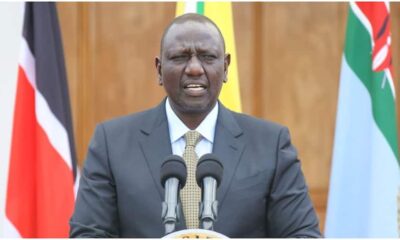

African leaders want record World Bank financing to address climate change
Ahead of a World Bank conference scheduled for later this year, African leaders on Monday called for rich countries to...
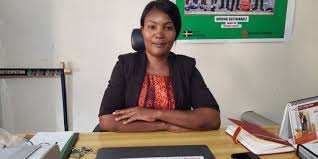

Conservationist, Kearns, names intolerance and digital media abuse as threats to media freedom
Nsama Kearns, the Executive Director of Care for Nature, speaks on the indispensable role of a free media in society....
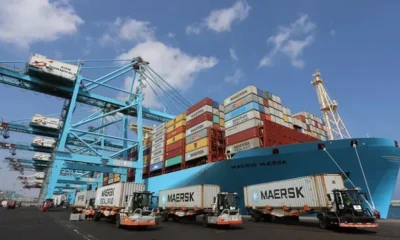

Nigeria gets $600 million investment from Danish firm Moller-Maersk
Nigeria’s presidency said on Sunday that President Bola Tinubu had secured an investment of $600 million from Danish shipping and...
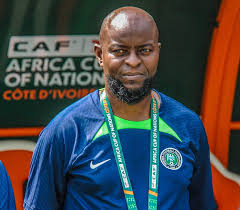

Nigeria’s football federation appoints Finidi George as Super Eagles coach
The Nigeria Football Federation (NFF) has approved the appointment of former international, Finidi George, as the new head coach of...
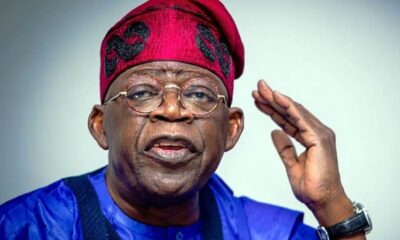

I saved Nigeria from bankruptcy by removing fuel subsidy— Tinubu
Nigerian President, Bola Tinubu, on Sunday, boasted that he saved Nigeria from going bankrupt by removing fuel subsidy on his...


Behind the News: All the backstories to our major news this week
Over the past week, there were lots of important stories from around the African continent, and we served you some...
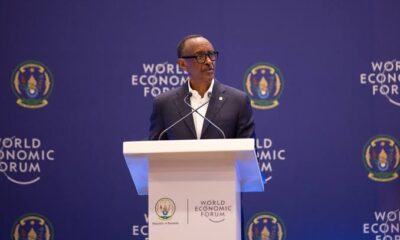

Video: How Rwanda is driving Ai revolution in Africa
In this video, the Managing Director of Rwanda’s Centre for the Fourth Industrial Revolution, Crystal Rugege, speaks on the country’s...


This Sudan war is too senseless; time we ended it, By Tee Ngugi
Why are the Sudanese Armed Forces (SAF) and the paramilitary Rapid Support Forces (RPF) engaged in a vicious struggle? It...
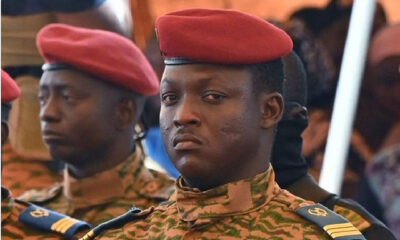

Burkina Faso investigating reports of northern killings
A government spokesman has revealed that Burkina Faso is looking into reports that 223 people were killed by the Burkinabe...


Nigeria: Bureaux De Change operators to harmonise retail FX market
Amidst the volatility around the Nigerian currency and its foreign exchange market, the Association of Bureaux De Change Operators in...
Trending
-

 Behind the News1 day ago
Behind the News1 day agoBehind the News: All the backstories to our major news this week
-

 Politics1 day ago
Politics1 day agoBurkina Faso investigating reports of northern killings
-
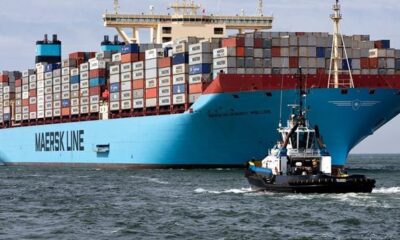
 Musings From Abroad2 days ago
Musings From Abroad2 days agoNigeria loses $9.2 billion to foreign shipowners
-

 VenturesNow1 day ago
VenturesNow1 day agoNigeria: Bureaux De Change operators to harmonise retail FX market


